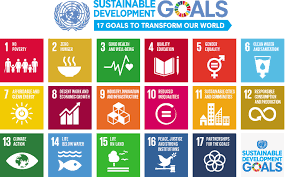A General Picture: Food & Water in Africa
Hello and welcome to my blog!
Here I will be exploring and unravelling two of the most
universally fundamental elements of development: Water and Food. Over the last
couple of years, I have developed a keen interest in human ecology as I seek to
understand how our social systems not only interact with our ecosystem, but
also how these interactions are so environmentally destructive. Over the upcoming
weeks, I will be blogging in detail about the increasing impact water
insecurity is having on food supplies in Africa from a human ecological
perspective.
The African picture
In her book “Governing the Commons”, Eleanor Ostrom recognises
water as a required natural global resource that goes beyond national
jurisdictions, as water is the basis for all life on Earth. Even though it is a
basic need, it is unsustainably exploited and unequally distributed across
societies. Africa is often referred to as the “mother continent”
because of its vast terrestrial space rich in physical and social landscapes,
but it is astonishing to see how disproportionately affected by food and water shortages
it is.
According to the WHO - UNICEF (2017), Africa has the lowest
proportions of national populations with access to safe water, which ultimately results
in having the lowest per capita rates of food production (Funk and Brown 2009).
However, it is important to note that these insecurities have not gone
unnoticed and throughout the years, there have been multiple interventions to
address this issue. A notable intervention was the 2014 Malabo Declaration on "Accelerated Agricultural growth and Transformation for Shared prosperity and
Improved livelihoods", where the African Union declared its will to end hunger
in Africa by 2025. This declaration was significant as it was the first attempt
of unifying African nations to reveal and tackle a shared issue of hunger, ultimately
paving the way for international communities to get involved and shape development
agendas and goals.
The bigger picture
Although over the last decade there has been massive
support for Africa both regionally and internationally to tackle these issues, abolishment of hunger in
Africa still seems ever so far away. Having read Binyavanga Wainaina's hard-hitting
article about "How
to Write About Africa", it really made me reflect on the way Western
scholars represent and write about this vastly diverse continent. The western saviour complex serves as an ideological function to undermine the
damage the west has done to keep the African continent underdeveloped and
exploited. Therefore, throughout my blogs I aim to break these Western conceptualizations
of Africa being a continent waiting to be saved. Hence, why I will be acknowledging
the works of numerous African scholars, who have a greater knowledge and
positionality when tackling regional issues of water and food insecurity.
Ultimately, relieving hunger in Africa may appear simple, however maximising and maintaining sustainable agricultural productivity is a very complex process, as many differing factors have to be considered. Therefore, in the forthcoming weeks I will be exploring and analysing issues such as urbanisation, environmental change, irrigation, population growth and virtual water, as they can all help to alleviate water and food insecurities.


I enjoyed reading your first piece and liked how you focused on the bigger picture and the overarching situation in Africa concerning water and development.
ReplyDeleteThank you! This is exactly what I was aiming to achieve, I hope you find my upcoming blogs enjoyable too as I begin to break down this bigger picture!
DeleteThis is a good introduction with balance use of source and referencing good. In relation to the figure, maybe showing the specific widgets that relate to water and food could be helpful.
ReplyDeleteThank you, in the section just under the figure I wrote "SDG's one, two, three, five, six and eleven are all goals that require water and food security in order to be achieved", I hope this answers your comment regarding specific widgets.
Delete